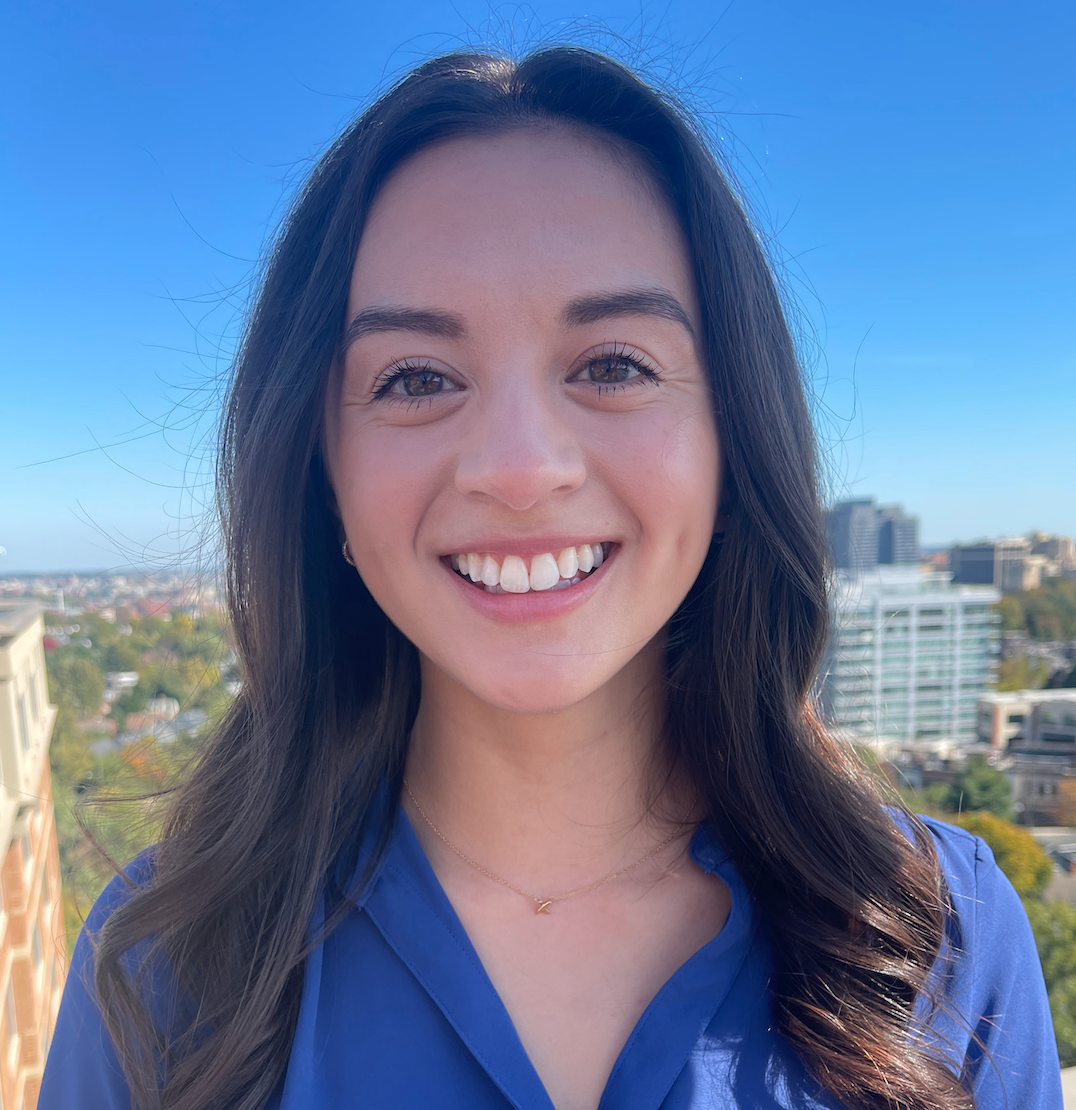Congratulations to Diana Cox on being selected as the Student Spotlight Award winner for September 2024!
The purpose of this award is to highlight students who are doing important work in the CBS community whether for research, clinical, and/or volunteer-humanitarian efforts.
This is a way to highlight their achievements, let the ACBS community know important work students are doing, and possibly provide a platform for mentoring, collaboration, professional development, and conversations around highlighted areas.

Learn more about Diana Cox
Background of CBS Research/Clinical/Volunteering efforts/achievements:
My first introduction to contextual behavioral science (CBS) was when I worked with veterans who had HIV in the Washington DC VA’s Infectious Disease Clinic. Though my traditional cognitive behavioral therapy knowledge was useful in this setting, I noticed that my patients, many of whom had been living with their chronic illness for years, responded positively to Acceptance and Commitment Therapy (ACT). This informed my decision to gain more intensive ACT training by working with Miranda Morris and Evan Marks at their ACT-focused private practice, True North, so I could better understand the theoretical underpinnings of this orientation. At True North, I became familiar with how functional contextualism, relational frame theory, and CBS inform ACT, which has greatly enhanced my clinical practice. After training at True North, I continued my CBS-informed training at NIH to learn how to better tailor my ACT interventions to diverse patient populations living with chronic illness and undergoing stem cell transplants. At NIH, I am developing a project focused on how illness identity is informed by principles of CBS and how the medical and psychological communities can better support individuals affected by lifelong chronic illness. I am also involved on a novel research protocol investigating the feasibility and efficacy of ACT for sleep disturbance in patients with sickle cell disease. For this project, I am providing sleep training from an ACT perspective to sickle cell patients. Furthermore, I regularly attend CBS workshops hosted by ACBS practitioners in my geographic area and across the country.
Autobiography:
My first experience with chronic disease was when my father was diagnosed with medullary thyroid cancer. As a young girl, I did not fully grasp the intensity of his cancer treatment and how it impacted his physical and mental health. It was only years later when he shared a diary he kept of his treatment experiences that I began to understand what he went through. This diary not only opened my eyes to the pain and isolation he experienced as a cancer patient, but also his resilience in a time of great adversity. My reflections upon his cancer journey and the lasting impact it had on me and my family drove me to pursue a career dedicated to supporting the emotional needs of medical patients navigating challenging diagnoses.
When I started graduate school, learning therapy filled me with excitement as my professional dreams were becoming fully realized. Beneath my enthusiasm, I had questions about how certain therapeutic techniques would generalize to medical patient populations. How would I use cognitive restructuring with a cancer patient who has concerns about remission? How would I adapt behavioral activation for someone with a disability status due to their chronic condition? These questions lead me to learning ACT and I immediately felt at home in its theoretical orientation. ACT helps me conceptualize my chronic illness patients from a more humanistic perspective and less diagnostically. As I look towards my future career, I hope to continue helping patients improve their quality of life through values-based living.
Future goals:
My career goal is to clinically and empirically apply principles of contextual behavioral science to improve the quality of life of individuals and caregivers impacted by chronic illness.
PEER-REVIEWED BOOK CHAPTERS
Cox, D. J., Behar, E., Gunthert, K. C. Tripartite Model of Anxiety and Depression (in press). In D. G. Friedman-Wheeler (Ed.), The SAGE Encyclopedia of Mood and Anxiety Disorders. Sage Publications.
Cox, D. J., Sullivan, T. R., E., Mereish, E. H. Facilitating Identity Development and Affirmation among LGBTQ+ People (under revision). In N. Livingston, B. Feinstein, & P. Galupo (Eds.), Addressing Minority Stress and Enhancing Resilience in Therapy with Diverse LGBTQ+ Clients. Springer Nature.
PEER-REVIEWED JOURNAL ARTICLES
Murphy, E.R., Cox, D. J., Fisseha, F., Gunthert, K.C., (2023) Category-Specific Stress Mindsets: Beliefs about the Debilitating Versus Enhancing Effects of Specific Types of Stressors among Young Adults. Behavioral Sciences, 13(9), 709. https://doi.org/10.3390/bs13090709
Mereish, E. H., Cox, D. J., Goldbach, J. T. (2022). Homophobic Bullying Victimization and Perpetration and Substance Use among Heterosexual Adolescents. International Journal of Behavioral Medicine. https://doi.org/10.1007/s12529-022-10109-2
Mereish, E. H., Cox, D. J., Harris, J. C., Anderson, Q. R., Hawthorne, D. J. (2020). Familial Influences, Shame, Guilt, and Depression among Sexual Minority Adolescents. Family Relations. 70(5), 1546-1555. https://doi.org/10.1111/fare.12514
MANUSRCRIPTS UNDER REVIEW & IN PREPARATION
Loucas, C., Taouk, L., Cox, D. J., Gunthert., K. C. The Efficacy of a Three-Week Stress Mindset Intervention with Daily Rehearsal on Psychological Health and Daily Cognitive-Emotional Functioning (under revision). Anxiety, Stress, and Coping.
